Im Lichte der hohen Gewichtung von sozialen Kompetenzen bzw. Softskills im Kontext der dualen Berufsausbildung in Deutschland steht das Verhalten von Jugendlichen gegenwärtig im Fokus pädagogischer Institutionen am Übergang Schule–Beruf. Die gesellschaftlichen Vorstellungen zu den für eine erfolgreiche Ausbildung als notwendig erachteten Verhaltensweisen realisieren sich in berufsvorbereitenden Bildungsgängen des Übergangssektors in einer spezifischen pädagogischen Ordnung, welche die vorliegende Studie ethnografisch beleuchtet.
Aktualisiert: 2023-07-01
> findR *
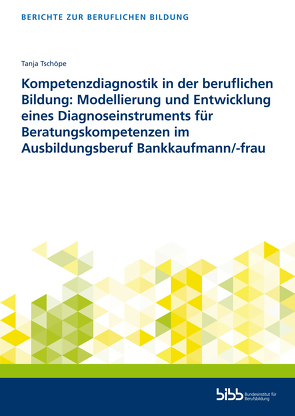
The primary aim pursued by this dissertation is to contribute to empirical competence modeling and measurement in vocational education and training. The field of investigation is the advisory competence of bank clerks with a special focus on their social competences. Social competences play a significant role in many vocational fi elds but are still underrepresented in empirical research. The study is subdivided in three parts. First, a requirements analysis inspects the field of client advisory in the vocational training of bank clerks. Analyses of documents, interviews with experts and sighting of the relevant literature are used to examine the main tasks and activities in customer service. Particular attention is directed to the in-company part of the training provided and the tasks and activities that trainees have to perform during this training. On this basis, a competence model for the advisory competences of trainee bank clerks who are almost finished with their vocational training is developed. Second, a situational judgment test for the assessment of social cognitive competences of bank clerks is designed. The quality of the instrument is estimated based on classical test theory and confirmatory factor analysis. Third, the situational Judgment test is applied in a study covering 300 apprentices at the end of their training. Additional data on professional competences and potential predictors of advisory competences is collected with standardised surveys. Relationships are analysed using bivariate measures, multiple regression and structural equation modeling. The results are interpreted concerning their relevance for the development and training of advisory competences of bank clerks.
Aktualisiert: 2023-07-01
> findR *
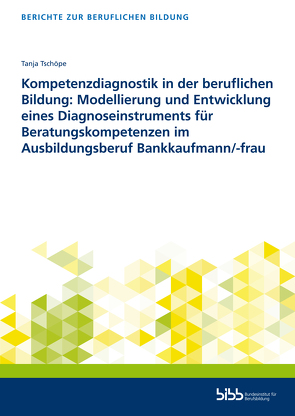
The primary aim pursued by this dissertation is to contribute to empirical competence modeling and measurement in vocational education and training. The field of investigation is the advisory competence of bank clerks with a special focus on their social competences. Social competences play a significant role in many vocational fi elds but are still underrepresented in empirical research. The study is subdivided in three parts. First, a requirements analysis inspects the field of client advisory in the vocational training of bank clerks. Analyses of documents, interviews with experts and sighting of the relevant literature are used to examine the main tasks and activities in customer service. Particular attention is directed to the in-company part of the training provided and the tasks and activities that trainees have to perform during this training. On this basis, a competence model for the advisory competences of trainee bank clerks who are almost finished with their vocational training is developed. Second, a situational judgment test for the assessment of social cognitive competences of bank clerks is designed. The quality of the instrument is estimated based on classical test theory and confirmatory factor analysis. Third, the situational Judgment test is applied in a study covering 300 apprentices at the end of their training. Additional data on professional competences and potential predictors of advisory competences is collected with standardised surveys. Relationships are analysed using bivariate measures, multiple regression and structural equation modeling. The results are interpreted concerning their relevance for the development and training of advisory competences of bank clerks.
Aktualisiert: 2023-07-01
> findR *
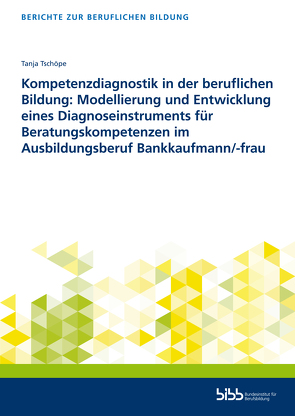
The primary aim pursued by this dissertation is to contribute to empirical competence modeling and measurement in vocational education and training. The field of investigation is the advisory competence of bank clerks with a special focus on their social competences. Social competences play a significant role in many vocational fi elds but are still underrepresented in empirical research. The study is subdivided in three parts. First, a requirements analysis inspects the field of client advisory in the vocational training of bank clerks. Analyses of documents, interviews with experts and sighting of the relevant literature are used to examine the main tasks and activities in customer service. Particular attention is directed to the in-company part of the training provided and the tasks and activities that trainees have to perform during this training. On this basis, a competence model for the advisory competences of trainee bank clerks who are almost finished with their vocational training is developed. Second, a situational judgment test for the assessment of social cognitive competences of bank clerks is designed. The quality of the instrument is estimated based on classical test theory and confirmatory factor analysis. Third, the situational Judgment test is applied in a study covering 300 apprentices at the end of their training. Additional data on professional competences and potential predictors of advisory competences is collected with standardised surveys. Relationships are analysed using bivariate measures, multiple regression and structural equation modeling. The results are interpreted concerning their relevance for the development and training of advisory competences of bank clerks.
Aktualisiert: 2023-07-01
> findR *
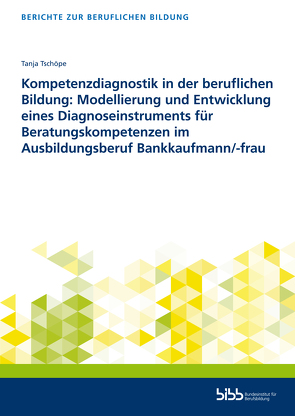
The primary aim pursued by this dissertation is to contribute to empirical competence modeling and measurement in vocational education and training. The field of investigation is the advisory competence of bank clerks with a special focus on their social competences. Social competences play a significant role in many vocational fi elds but are still underrepresented in empirical research. The study is subdivided in three parts. First, a requirements analysis inspects the field of client advisory in the vocational training of bank clerks. Analyses of documents, interviews with experts and sighting of the relevant literature are used to examine the main tasks and activities in customer service. Particular attention is directed to the in-company part of the training provided and the tasks and activities that trainees have to perform during this training. On this basis, a competence model for the advisory competences of trainee bank clerks who are almost finished with their vocational training is developed. Second, a situational judgment test for the assessment of social cognitive competences of bank clerks is designed. The quality of the instrument is estimated based on classical test theory and confirmatory factor analysis. Third, the situational Judgment test is applied in a study covering 300 apprentices at the end of their training. Additional data on professional competences and potential predictors of advisory competences is collected with standardised surveys. Relationships are analysed using bivariate measures, multiple regression and structural equation modeling. The results are interpreted concerning their relevance for the development and training of advisory competences of bank clerks.
Aktualisiert: 2023-07-01
> findR *
Im Lichte der hohen Gewichtung von sozialen Kompetenzen bzw. Softskills im Kontext der dualen Berufsausbildung in Deutschland steht das Verhalten von Jugendlichen gegenwärtig im Fokus pädagogischer Institutionen am Übergang Schule–Beruf. Die gesellschaftlichen Vorstellungen zu den für eine erfolgreiche Ausbildung als notwendig erachteten Verhaltensweisen realisieren sich in berufsvorbereitenden Bildungsgängen des Übergangssektors in einer spezifischen pädagogischen Ordnung, welche die vorliegende Studie ethnografisch beleuchtet.
Aktualisiert: 2023-07-01
> findR *
Im Lichte der hohen Gewichtung von sozialen Kompetenzen bzw. Softskills im Kontext der dualen Berufsausbildung in Deutschland steht das Verhalten von Jugendlichen gegenwärtig im Fokus pädagogischer Institutionen am Übergang Schule–Beruf. Die gesellschaftlichen Vorstellungen zu den für eine erfolgreiche Ausbildung als notwendig erachteten Verhaltensweisen realisieren sich in berufsvorbereitenden Bildungsgängen des Übergangssektors in einer spezifischen pädagogischen Ordnung, welche die vorliegende Studie ethnografisch beleuchtet.
Aktualisiert: 2023-07-01
> findR *
Im Lichte der hohen Gewichtung von sozialen Kompetenzen bzw. Softskills im Kontext der dualen Berufsausbildung in Deutschland steht das Verhalten von Jugendlichen gegenwärtig im Fokus pädagogischer Institutionen am Übergang Schule–Beruf. Die gesellschaftlichen Vorstellungen zu den für eine erfolgreiche Ausbildung als notwendig erachteten Verhaltensweisen realisieren sich in berufsvorbereitenden Bildungsgängen des Übergangssektors in einer spezifischen pädagogischen Ordnung, welche die vorliegende Studie ethnografisch beleuchtet.
Aktualisiert: 2023-07-01
> findR *
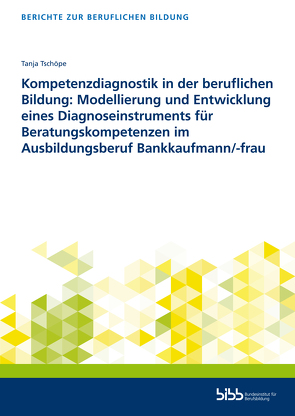
The primary aim pursued by this dissertation is to contribute to empirical competence modeling and measurement in vocational education and training. The field of investigation is the advisory competence of bank clerks with a special focus on their social competences. Social competences play a significant role in many vocational fi elds but are still underrepresented in empirical research. The study is subdivided in three parts. First, a requirements analysis inspects the field of client advisory in the vocational training of bank clerks. Analyses of documents, interviews with experts and sighting of the relevant literature are used to examine the main tasks and activities in customer service. Particular attention is directed to the in-company part of the training provided and the tasks and activities that trainees have to perform during this training. On this basis, a competence model for the advisory competences of trainee bank clerks who are almost finished with their vocational training is developed. Second, a situational judgment test for the assessment of social cognitive competences of bank clerks is designed. The quality of the instrument is estimated based on classical test theory and confirmatory factor analysis. Third, the situational Judgment test is applied in a study covering 300 apprentices at the end of their training. Additional data on professional competences and potential predictors of advisory competences is collected with standardised surveys. Relationships are analysed using bivariate measures, multiple regression and structural equation modeling. The results are interpreted concerning their relevance for the development and training of advisory competences of bank clerks.
Aktualisiert: 2023-06-22
> findR *
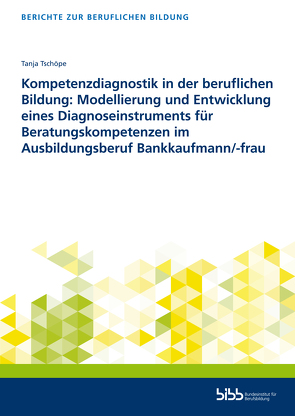
The primary aim pursued by this dissertation is to contribute to empirical competence modeling and measurement in vocational education and training. The field of investigation is the advisory competence of bank clerks with a special focus on their social competences. Social competences play a significant role in many vocational fi elds but are still underrepresented in empirical research. The study is subdivided in three parts. First, a requirements analysis inspects the field of client advisory in the vocational training of bank clerks. Analyses of documents, interviews with experts and sighting of the relevant literature are used to examine the main tasks and activities in customer service. Particular attention is directed to the in-company part of the training provided and the tasks and activities that trainees have to perform during this training. On this basis, a competence model for the advisory competences of trainee bank clerks who are almost finished with their vocational training is developed. Second, a situational judgment test for the assessment of social cognitive competences of bank clerks is designed. The quality of the instrument is estimated based on classical test theory and confirmatory factor analysis. Third, the situational Judgment test is applied in a study covering 300 apprentices at the end of their training. Additional data on professional competences and potential predictors of advisory competences is collected with standardised surveys. Relationships are analysed using bivariate measures, multiple regression and structural equation modeling. The results are interpreted concerning their relevance for the development and training of advisory competences of bank clerks.
Aktualisiert: 2023-06-22
> findR *
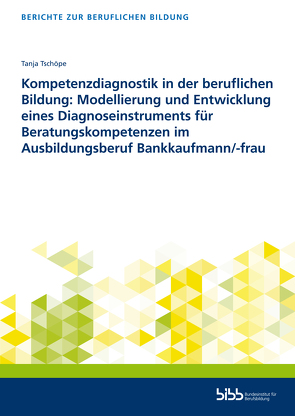
The primary aim pursued by this dissertation is to contribute to empirical competence modeling and measurement in vocational education and training. The field of investigation is the advisory competence of bank clerks with a special focus on their social competences. Social competences play a significant role in many vocational fi elds but are still underrepresented in empirical research. The study is subdivided in three parts. First, a requirements analysis inspects the field of client advisory in the vocational training of bank clerks. Analyses of documents, interviews with experts and sighting of the relevant literature are used to examine the main tasks and activities in customer service. Particular attention is directed to the in-company part of the training provided and the tasks and activities that trainees have to perform during this training. On this basis, a competence model for the advisory competences of trainee bank clerks who are almost finished with their vocational training is developed. Second, a situational judgment test for the assessment of social cognitive competences of bank clerks is designed. The quality of the instrument is estimated based on classical test theory and confirmatory factor analysis. Third, the situational Judgment test is applied in a study covering 300 apprentices at the end of their training. Additional data on professional competences and potential predictors of advisory competences is collected with standardised surveys. Relationships are analysed using bivariate measures, multiple regression and structural equation modeling. The results are interpreted concerning their relevance for the development and training of advisory competences of bank clerks.
Aktualisiert: 2023-06-22
> findR *
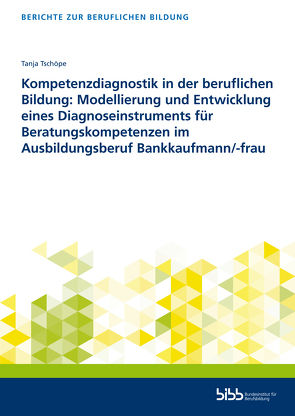
The primary aim pursued by this dissertation is to contribute to empirical competence modeling and measurement in vocational education and training. The field of investigation is the advisory competence of bank clerks with a special focus on their social competences. Social competences play a significant role in many vocational fi elds but are still underrepresented in empirical research. The study is subdivided in three parts. First, a requirements analysis inspects the field of client advisory in the vocational training of bank clerks. Analyses of documents, interviews with experts and sighting of the relevant literature are used to examine the main tasks and activities in customer service. Particular attention is directed to the in-company part of the training provided and the tasks and activities that trainees have to perform during this training. On this basis, a competence model for the advisory competences of trainee bank clerks who are almost finished with their vocational training is developed. Second, a situational judgment test for the assessment of social cognitive competences of bank clerks is designed. The quality of the instrument is estimated based on classical test theory and confirmatory factor analysis. Third, the situational Judgment test is applied in a study covering 300 apprentices at the end of their training. Additional data on professional competences and potential predictors of advisory competences is collected with standardised surveys. Relationships are analysed using bivariate measures, multiple regression and structural equation modeling. The results are interpreted concerning their relevance for the development and training of advisory competences of bank clerks.
Aktualisiert: 2023-06-22
> findR *
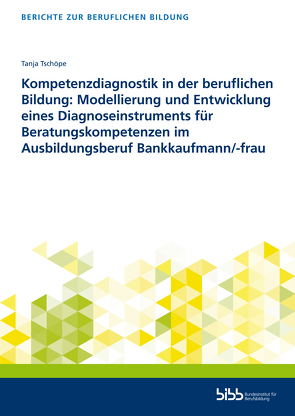
The primary aim pursued by this dissertation is to contribute to empirical competence modeling and measurement in vocational education and training. The field of investigation is the advisory competence of bank clerks with a special focus on their social competences. Social competences play a significant role in many vocational fi elds but are still underrepresented in empirical research. The study is subdivided in three parts. First, a requirements analysis inspects the field of client advisory in the vocational training of bank clerks. Analyses of documents, interviews with experts and sighting of the relevant literature are used to examine the main tasks and activities in customer service. Particular attention is directed to the in-company part of the training provided and the tasks and activities that trainees have to perform during this training. On this basis, a competence model for the advisory competences of trainee bank clerks who are almost finished with their vocational training is developed. Second, a situational judgment test for the assessment of social cognitive competences of bank clerks is designed. The quality of the instrument is estimated based on classical test theory and confirmatory factor analysis. Third, the situational Judgment test is applied in a study covering 300 apprentices at the end of their training. Additional data on professional competences and potential predictors of advisory competences is collected with standardised surveys. Relationships are analysed using bivariate measures, multiple regression and structural equation modeling. The results are interpreted concerning their relevance for the development and training of advisory competences of bank clerks.
Aktualisiert: 2023-06-02
> findR *
Im Lichte der hohen Gewichtung von sozialen Kompetenzen bzw. Softskills im Kontext der dualen Berufsausbildung in Deutschland steht das Verhalten von Jugendlichen gegenwärtig im Fokus pädagogischer Institutionen am Übergang Schule–Beruf. Die gesellschaftlichen Vorstellungen zu den für eine erfolgreiche Ausbildung als notwendig erachteten Verhaltensweisen realisieren sich in berufsvorbereitenden Bildungsgängen des Übergangssektors in einer spezifischen pädagogischen Ordnung, welche die vorliegende Studie ethnografisch beleuchtet.
Aktualisiert: 2023-04-01
> findR *
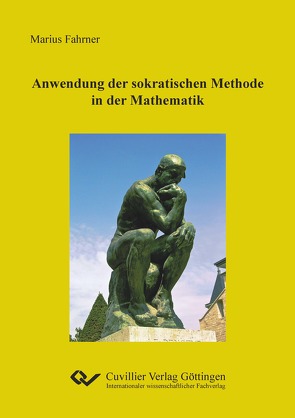
In Folge des Bologna-Prozesses ist die Kompetenzorientierung zu einem wichtigen Merkmal der Hochschulbildung geworden. Neben der Förderung fachspezifischer Kompetenzen soll dabei vor allem die Entwicklung fächerübergreifender Kompetenzen gewährleistet werden, da fächerübergreifende Kompetenzen in der heutigen Bildungslandschaft als unentbehrliche Ressource gelten. Das vorliegende Werk widmet sich daher der Frage, ob der Einsatz einer aus der Philosophie bekannten Methode, der sokratischen Methode, im Fach Mathematik fachspezifische sowie fächerübergreifende Kompetenzen positiv beeinflusst. Die im Rahmen des vorliegenden Werks durchgeführten qualitativen sowie quantitativen Analysen legen den Schluss nahe, dass der Einsatz der sokratischen Methode in der Mathematik einen signifikant positiven Einfluss insbesondere auf die Förderung der vier Lernkompetenzen Fach-, Methoden-, Sozial- und Selbstkompetenz hat. Der Verfasser empfiehlt daher einen vermehrten Einsatz der sokratischen Methode.
Aktualisiert: 2023-01-01
> findR *
Im Lichte der hohen Gewichtung von sozialen Kompetenzen bzw. Softskills im Kontext der dualen Berufsausbildung in Deutschland steht das Verhalten von Jugendlichen gegenwärtig im Fokus pädagogischer Institutionen am Übergang Schule–Beruf. Die gesellschaftlichen Vorstellungen zu den für eine erfolgreiche Ausbildung als notwendig erachteten Verhaltensweisen realisieren sich in berufsvorbereitenden Bildungsgängen des Übergangssektors in einer spezifischen pädagogischen Ordnung, welche die vorliegende Studie ethnografisch beleuchtet.
Aktualisiert: 2023-04-01
> findR *
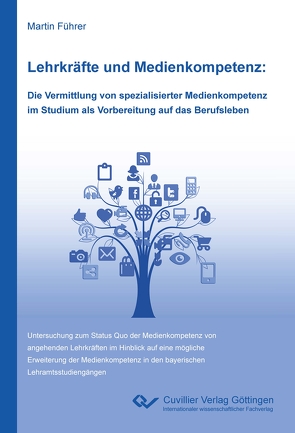
Das Thema Medienpädagogik in der Schule beschäftigt gegenwärtig die Politik auf Bundes- und Landesebene. Große Pläne sind es, die umgesetzt werden sollen. Mehr Mediengeräte in den Schulen und ein vermehrter Fokus auf thematische Inhalte mit Schwerpunkt Medien im Unterricht. Dabei ist der Status Quo in den einzelnen Bundesländern im Moment sehr unterschiedlich. Er reicht von einem festen Schulfach „Medienkunde“ in Thüringen über ein Zehn-Punkte-Programm zum Ausbau der Medienbildung in Rheinland-Pfalz bis hin zu einer eher projektorientierten Vermittlung der Thematik in Bayern.
Gleichzeitig aber wird das Thema „Medien“ in vielen Lebensbereichen von Kindern und Jugendlichen immer wichtiger. Sie sammeln durch ihre eigenen Erfahrungen und Medienbiographien – teils angeleitet von Eltern oder Erzieherinnen und Erziehern, teils aber auch ohne Aufsicht – Wissen über Medien und machen positive und negative Erfahrungen. Diese Erfahrungen können sich einerseits vorteilhaft auf das eigene Leben auswirken (z. B. schnelle Recherche für Referate im Internet), andererseits resultieren aus den vielfältigen Gefahren der Medienwelt auch schlechte Erfahrungen. Cyber-Mobbing, Happy-Slapping, Verabredungen zum Suizid, Gewalt, religiöser Fanatismus, Pornographie und sogar Terrorismus sind oftmals nur einen Mausklick entfernt. Neben einer Sensibilisierung von Eltern und Erzieherinnen und Erziehern für diese Thematik ist aber auch eine fundierte Lehrerausbildung im Medienbereich unabdingbar. Nur so können Lehrerinnen und Lehrer ihren Schülerinnen und Schülern Wissen über Medien vermitteln, nur so können sie ihnen die Gefahren aufzeigen und nur so können sie sich die Medien für didaktische Zwecke zu Nutze machen. Das Stichwort für all diese und noch mehr Anwendungsbereiche lautet:
Medienkompetenz.
Diese Dissertation hat sich zum Ziel gesetzt, den Ist-Zustand der Medienkompetenz von angehenden Lehrkräften während ihrer Ausbildung – am Beispiel der Universität Passau – abzubilden (bzw. im weiteren Sinne zu messen) und, darauf basierend, Vorschläge für eine bessere Verankerung der Thematik in der Ausbildung der bayerischen Lehrkräfte auszuarbeiten.
Aktualisiert: 2023-01-01
> findR *
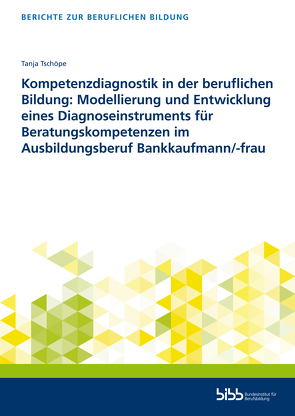
The primary aim pursued by this dissertation is to contribute to empirical competence modeling and measurement in vocational education and training. The field of investigation is the advisory competence of bank clerks with a special focus on their social competences. Social competences play a significant role in many vocational fi elds but are still underrepresented in empirical research. The study is subdivided in three parts. First, a requirements analysis inspects the field of client advisory in the vocational training of bank clerks. Analyses of documents, interviews with experts and sighting of the relevant literature are used to examine the main tasks and activities in customer service. Particular attention is directed to the in-company part of the training provided and the tasks and activities that trainees have to perform during this training. On this basis, a competence model for the advisory competences of trainee bank clerks who are almost finished with their vocational training is developed. Second, a situational judgment test for the assessment of social cognitive competences of bank clerks is designed. The quality of the instrument is estimated based on classical test theory and confirmatory factor analysis. Third, the situational Judgment test is applied in a study covering 300 apprentices at the end of their training. Additional data on professional competences and potential predictors of advisory competences is collected with standardised surveys. Relationships are analysed using bivariate measures, multiple regression and structural equation modeling. The results are interpreted concerning their relevance for the development and training of advisory competences of bank clerks.
Aktualisiert: 2023-04-01
> findR *
Anleitung zum Glücklichsein
Für unser Glücksempfinden ist zu 50 Prozent unsere Grundeinstellung verantwortlich, zu zehn Prozent sind es die Lebensumstände und zu erstaunlichen 40 Prozent können wir selbst aktiv Einfluss darauf nehmen. Zu dieser Erkenntnis kommt die renommierte amerikanische Psychologin Sonja Lyubomirsky in ihrem hier frisch überarbeiteten Standardwerk. Im Zentrum steht dabei ein wissenschaftlich fundiertes Modell, das uns hilft, aus zwölf Glücksaktivitäten die eigene Glücksstrategie zusammenzustellen. Denn: Glück hat nichts mit dem Glauben an Gurus oder dem Lesen von Kalendersprüchen zu tun. Vielmehr können wir uns bei wissenschaftlichen Fakten bedienen, um dem Glück auf die Sprünge zu helfen!
"Wenn Sie eine wissenschaftlich fundierte Anleitung suchen, wie Sie ein glücklicheres Leben führen können, dann ist dies genau das richtige Buch."
Martin Seligman, Autor von "Der Glücksfaktor"
Aktualisiert: 2023-04-30
> findR *
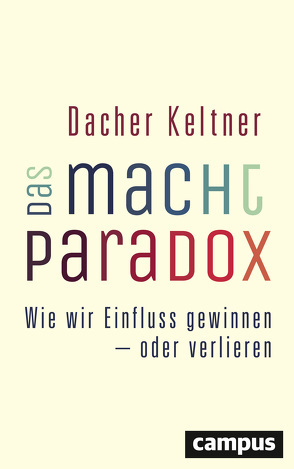
Macht haben, Mensch bleiben
Es sind nicht die Ellenbogen, es ist unser Gemeinsinn, der uns Macht verleiht. Doch sobald wir Macht haben und ihren Verführungen erliegen, geht uns die soziale Kompetenz schnell wieder verloren. Wir alle sind Opfer dieses Macht-Paradoxes, sagt der renommierte Psychologe Dacher Keltner. In seinem neuen Buch zeigt er, dass Macht und auch Machtmissbrauch in jedem Winkel unseres sozialen Lebens vorkommen:
- In der Arbeitswelt,
- in der Familie,
- innerhalb von Freundschaften und gesellschaftlichen Gruppen.
Macht bestimmt das Leben aller Menschen. Und erst wenn wir einen Blick durch die Brille der Macht werfen, lässt sich dieses Paradox auflösen. Damit die Guten nicht nur an die Macht kommen, sondern empathisch bleiben und sie behalten. Keltners Buch ist eine revolutionäre neue positive Psychologie der Macht. Einer der bedeutendsten Psychologen Amerikas inspiriert uns dazu, auf eine neue Weise über Macht nachzudenken. Sein Buch hilft uns, uns selbst zu verstehen.
"Dacher Keltner verändert die Vorstellungen darüber, wie Macht und wie Ungleichheit funktionieren. Es ist nur eine Frage der Zeit, bis seine Ideen sich überall verbreiten. Und im Gegensatz zu anderen Psychologen, die ich kenne, ist er kein Spinner."
Michael Lewis, Autor von "The Big Short"
Aktualisiert: 2023-03-20
> findR *
MEHR ANZEIGEN
Bücher zum Thema social competence
Sie suchen ein Buch über social competence? Bei Buch findr finden Sie eine große Auswahl Bücher zum
Thema social competence. Entdecken Sie neue Bücher oder Klassiker für Sie selbst oder zum Verschenken. Buch findr
hat zahlreiche Bücher zum Thema social competence im Sortiment. Nehmen Sie sich Zeit zum Stöbern und finden Sie das
passende Buch für Ihr Lesevergnügen. Stöbern Sie durch unser Angebot und finden Sie aus unserer großen Auswahl das
Buch, das Ihnen zusagt. Bei Buch findr finden Sie Romane, Ratgeber, wissenschaftliche und populärwissenschaftliche
Bücher uvm. Bestellen Sie Ihr Buch zum Thema social competence einfach online und lassen Sie es sich bequem nach
Hause schicken. Wir wünschen Ihnen schöne und entspannte Lesemomente mit Ihrem Buch.
social competence - Große Auswahl Bücher bei Buch findr
Bei uns finden Sie Bücher beliebter Autoren, Neuerscheinungen, Bestseller genauso wie alte Schätze. Bücher zum
Thema social competence, die Ihre Fantasie anregen und Bücher, die Sie weiterbilden und Ihnen wissenschaftliche
Fakten vermitteln. Ganz nach Ihrem Geschmack ist das passende Buch für Sie dabei. Finden Sie eine große Auswahl
Bücher verschiedenster Genres, Verlage, Autoren bei Buchfindr:
Sie haben viele Möglichkeiten bei Buch findr die passenden Bücher für Ihr Lesevergnügen zu entdecken. Nutzen Sie
unsere Suchfunktionen, um zu stöbern und für Sie interessante Bücher in den unterschiedlichen Genres und Kategorien
zu finden. Unter social competence und weitere Themen und Kategorien finden Sie schnell und einfach eine Auflistung
thematisch passender Bücher. Probieren Sie es aus, legen Sie jetzt los! Ihrem Lesevergnügen steht nichts im Wege.
Nutzen Sie die Vorteile Ihre Bücher online zu kaufen und bekommen Sie die bestellten Bücher schnell und bequem
zugestellt. Nehmen Sie sich die Zeit, online die Bücher Ihrer Wahl anzulesen, Buchempfehlungen und Rezensionen zu
studieren, Informationen zu Autoren zu lesen. Viel Spaß beim Lesen wünscht Ihnen das Team von Buchfindr.



















